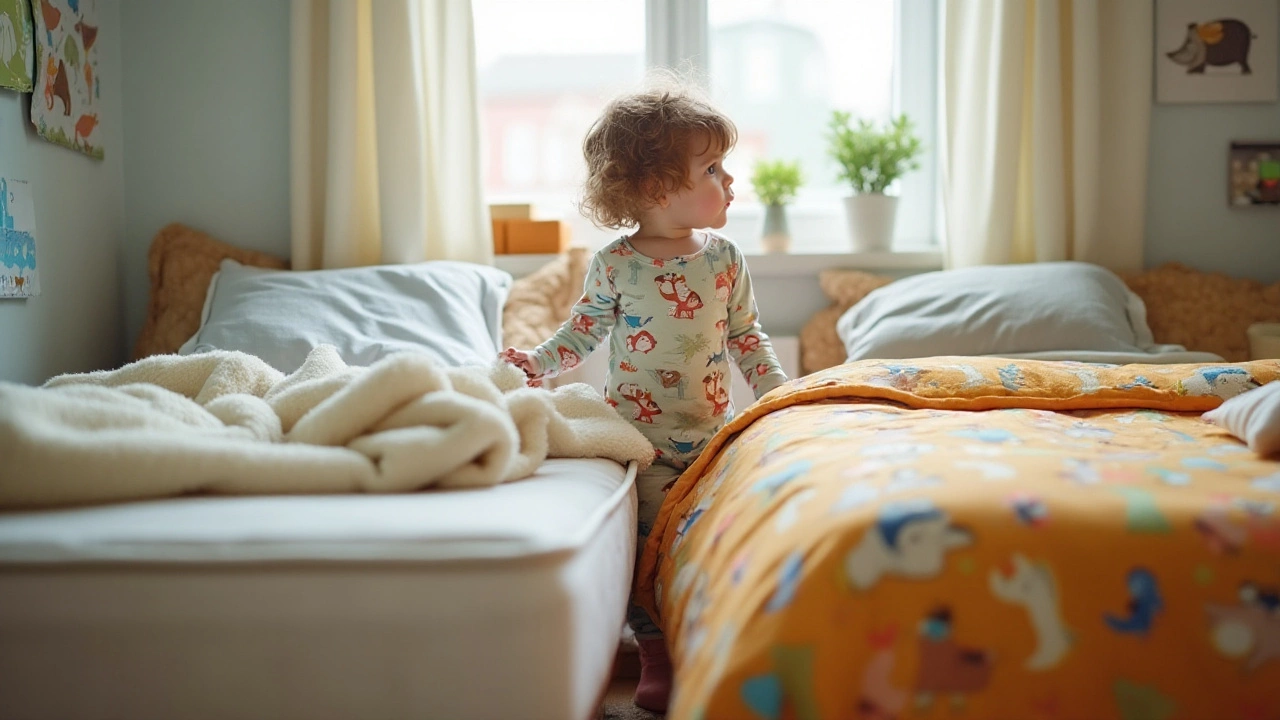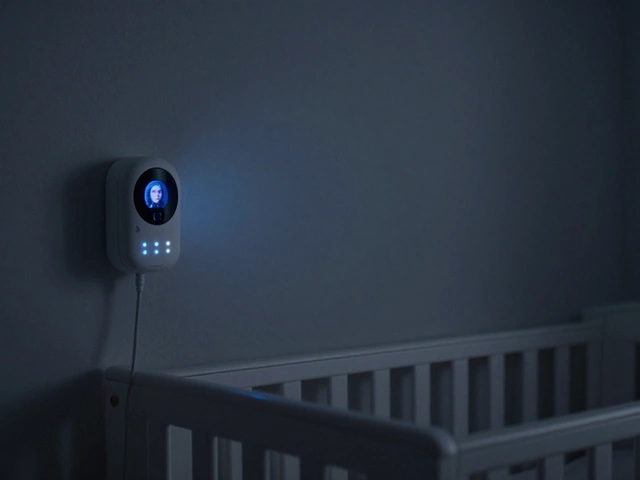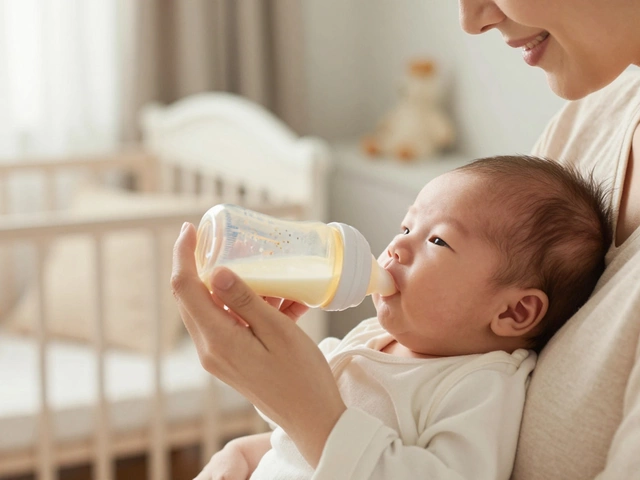
Where your toddler sleeps is not just about a place to rest; it's a fundamental part of their growth and development. As a parent, deciding on the perfect mattress can feel like a daunting task, especially when you're standing in front of rows of beds, with choices ranging from the firm to the plush. Which one should cradle your little dreamer through the night? Will a firm mattress provide the necessary support? Or would a soft one offer a cozy and inviting sleep?
Choosing the right mattress for a toddler isn't a one-size-fits-all decision. Their sleep needs vary, and what might work for one child might not suit another. As we navigate the options, we consider factors like spinal support, comfort, and even safety. Let’s dive into the world of toddler mattresses and shed some light on whether the soft or the firm side of things resonates with your parenting choices.
- Understanding Toddler Sleep Needs
- Benefits of Firm Mattresses
- Advantages of Soft Mattresses
- Making the Right Choice
Understanding Toddler Sleep Needs
When it comes to the toddler mattress, understanding sleep requirements is imperative. Toddlers are in a stage of significant growth and development, which means their sleep habits can directly affect their overall well-being. It’s common knowledge that toddlers need about 11 to 14 hours of sleep within a 24-hour period, inclusive of naps. This might seem like a lot at first glance, but the hours they spend asleep are filled with brain development, the building of memory, and strengthening learning capabilities. Their little bodies are growing at a rapid pace, and so the mattress they snooze on plays a pivotal role in supporting this stage of their growth journey.
Choosing between a firm vs soft mattress is more than just a preference; it affects spinal alignment and safety. Firmness in a mattress, particularly for toddlers, is connected to health benefits. A firmer sleeping surface can help maintain a neutral and safe sleeping position, reducing the risk of misalignments or potential development issues. According to the Sleep Foundation, toddlers transitioning from a crib may benefit from a mattress that balances firmness with a bit of cushiness. "A mattress should not be too squishy, allowing children to grow and develop proper posture while they sleep," suggests Dr. Mary Carskadon, a sleep expert with over 40 years of experience.
Throughout toddlerhood, there's a dynamic change in routines that can be quite fascinating to observe. Many parents note that toddlers may exhibit different sleep patterns compared to when they were infants. Growth spurts, teething, and even daily activity levels all have roles in shaping a toddler’s sleep cycle. During these changes, ensuring they have a comforting yet supportive sleeping arrangement is crucial. This is where the decision around a toddler bed's mattress becomes important. Too firm might mean discomfort leading to restless nights, while too plush could pose a risk, especially for active sleepers. A balance is crucial, allowing these tiny adventurers to embark on their nightly quests comfortably.
On a cultural note, sleep traditions vary around the world but the essentials remain universal—safety, comfort, and support. Traditional wisdom and modern science often intersect when considering children's sleep. For instance, while some cultures place a significant focus on co-sleeping, others emphasize independent sleeping habits early on. Regardless of these differences, the importance of a supportive yet comfortable mattress crosses cultural lines as a fundamental part of healthy sleep hygiene for young children.
With all these factors in mind, it's evident that nurturing a toddler's sleep is a multifaceted task. It's crucial to consider not just what they sleep on but how their environment complements their readiness for rest. Mattress selection, thus, becomes a crucial consideration that aligns closely with the journey of parenthood.

Benefits of Firm Mattresses
When it comes to choosing a suitable mattress for a toddler, many parents might initially lean towards something soft and cozy. However, there are strong arguments in favor of the firm mattress option that could make you reconsider. One crucial factor is the kind of support that a firm mattress provides. For growing toddlers, proper spinal alignment is essential. A firm mattress offers the necessary support to keep the spine aligned, which is important as their skeletal systems are still developing. Unlike very soft mattresses that can sink and create uneven surfaces, a firm mattress ensures that the child’s body weight is evenly distributed, preventing any awkward sleeping positions.
Another compelling benefit is safety. A firm mattress reduces the risk of suffocation, a vital consideration for younger toddlers transitioning from a crib. Since it doesn't conform too much to the body, a firm mattress minimizes the chances of the toddler's face becoming trapped in the mattress, potentially obstructing breathing. This aspect of safety is a reason why many pediatricians recommend opting for a firmer sleep surface for toddlers. The longevity of a firm mattress also comes into play. They tend to hold their shape much longer as compared to a soft mattress, which can become compressed and sag under weight over time. This resilience makes a firm mattress a durable choice that can sustain a child’s energetic bedtime antics without losing its structural integrity.
Cost-effectiveness is another angle worth considering. Due to their durability, firm mattresses often do not require a replacement as quickly as softer ones. This longevity makes them a cost-effective solution for families looking to invest in long-term comfort for their child. Not forgetting that for many, the tactile response of a firmer mattress can be soothing in its own right – the stability and support can have a calming effect, helping some toddlers feel more secure as they rest. Given these points, many childcare experts endorse firmer options. The renowned pediatrician, Dr. Katherine Williamson, noted,
"A firm mattress provides the best combination of comfort and protection for young children as they move through critical growth stages."These collective insights suggest that beyond just being a place for rest, a firm mattress is an investment into the health and safety of a growing toddler, making a strong case for its preference over a much softer choice.

Advantages of Soft Mattresses
When it comes to choosing the perfect slumber spot for your toddler, soft mattresses offer a lure of snug comfort that can be quite appealing. Imagine sinking into a pile of soft clouds, embracing your child with gentle coziness. Some children, particularly those who are smaller or lighter, may find that a softer surface contours more to their body shape, offering them the cuddly sleep experience their dreams are made of. This quality is not just about comfort; it can also play a role in their sense of security during the night. A soft mattress may remind them of the warm hugs and reassuring tuck-ins that spell safety in their world.
The debate between choosing a soft versus firm mattress often stems from different parenting philosophies and opinions on what's best for kids' development. A softer mattress might be particularly beneficial during colder months, where the added layers can keep the chill away, wrapping your toddler in a warm embrace that encourages uninterrupted sleep. Sleep experts suggest that comfort is often an underestimated factor in achieving quality sleep. When toddlers feel at ease in their bed environment, they are more likely to fall asleep quicker and enjoy deeper, restorative sleep cycles.
"While firmness has its virtues, comfort shouldn't be overlooked. Every good night starts when a child feels at home in their own bed." — Dr. Samuel Grier, Pediatric Sleep Specialist
Furthermore, soft mattresses are often seen to be more forgiving when it comes to those midnight adjustments many toddlers make while sleeping. Due to their pliable nature, they can adapt to various sleep positions without causing too much disruption. This flexibility may be particularly important for toddlers who tend to toss and turn throughout the night. A good night's sleep is critical for growth and development, contributing to better moods and increased focus during the day.
Toddler mattress shopping can feel overwhelming, but when considering soft mattresses, one should also think about the materials used in their construction. Modern soft mattresses can be designed with advanced foams or combination materials that strike a balance between softness and support, aiming to cradle your child into a sound slumber while supporting developing bones. Memory foam for instance is a popular choice, offering a personalized sleeping space by contouring to each child's individual shape, creating a custom bed-time experience.
Comfort aside, many parents worry about safety, a valid concern when it comes to toddlers' beds. It's vital to ensure that any soft mattress chosen maintains adequate support. Too much give can sometimes lead to an insecure sleep surface that may increase the risk of entrapment for younger children. However, if parents focus on quality and make informed selections with an emphasis on safety standards, soft mattresses can most definitely offer an inviting and secure environment for toddler sleep. The key lies in finding that perfect blend of cloud-like comfort and reliable support.

Making the Right Choice
When it comes to picking the right toddler mattress, many parents find themselves at a crossroads. It's not just about firm or soft; it's about a myriad of factors that all come together to support your child's sleep and growth. As you embark on this mattress journey, consider the specific needs of your own toddler, acknowledging that every child indeed is unique in their sleeping patterns and comfort preferences. Factors such as body weight, average sleep position, any existing allergies, and even the climate of your location can subtly influence your decision. Understand that a mattress is not just a purchase, but an investment in your child’s health and well-being.
A study from the American Academy of Pediatrics highlighted that the firmness of a sleep surface can significantly impact the developmental aspects of a toddler's spine. On one hand, a firm mattress can prevent issues related to spinal alignment, especially if your toddler is known to wiggle a lot in their sleep. On the other hand, a mattress that's too hard might not provide the cushy feel that lets them drift comfortably into slumber. Think about how much your child moves—do they like to curl up, or do they sprawl across the bed? Even these details can help guide your choice.
The right mattress is neither too hard nor too soft, but one that fits within the Goldilocks zone of just right," says Dr. Emily Harper, a pediatric sleep specialist. "Observe your child's sleep patterns, and let their behavior guide your choice of mattress."
Consider the material of the mattress too. Natural latex and memory foam offer distinct benefits, such as safety from allergens and breathability, which are essential factors for children's bedding. It might be beneficial to create a checklist, evaluating things like firmness, hypoallergenic properties, and budget. Remember, while cost is often thought of as indicative of quality, there are many affordable options that don’t compromise on comfort and safety.
Additionally, don’t underestimate the power of a good mattress protector. This can extend the life of your mattress significantly, considering the occasional spills are almost inevitable with toddlers. Some parents also choose a reversible mattress option, firm on one side and soft on the other, allowing flexibility and adjustment as your toddler grows. Take advantage of the ability to try mattresses in-store if possible or consider retailers who offer return policies. Trying before buying or long return windows can be a saving grace if the first choice doesn't quite cut it.





